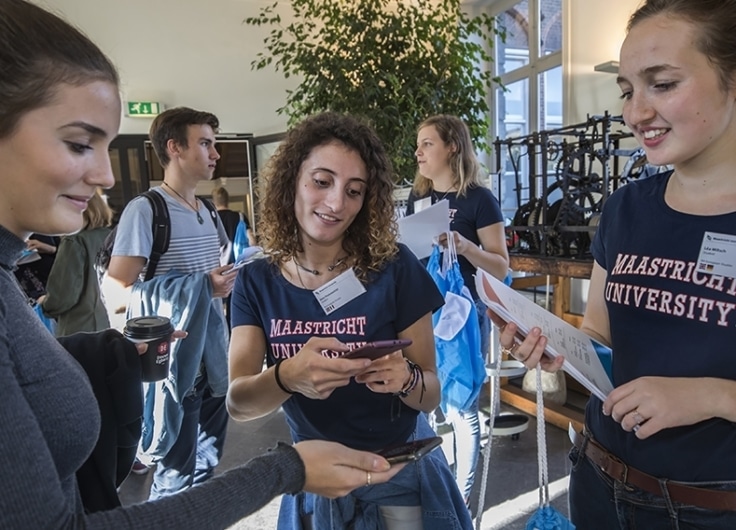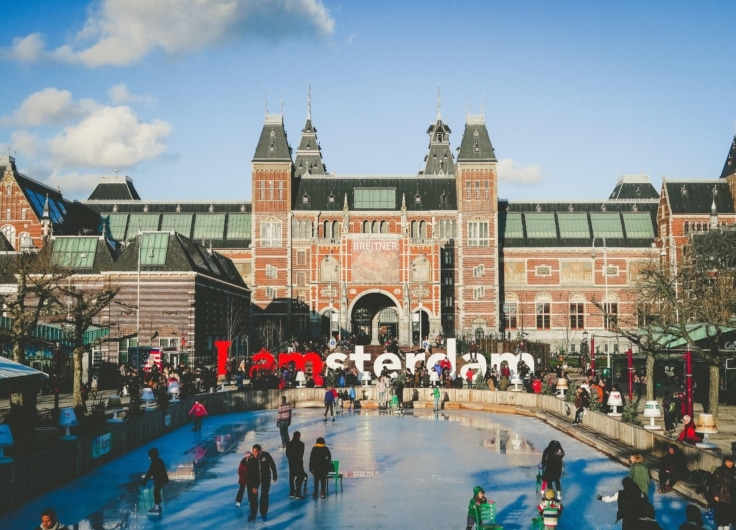English Books Are Popular With Dutch Speakers. So What?
Is it a good thing that the Dutch and Flemish crack open a huge number of English books every year? At least they’re reading. Or will this trend spell disaster for Dutch publishers, authors and translators? For booksellers and publishers, things are not as bleak as they might seem. For authors and translators, however, it’s a different – less positive – story.
It’s been all over the media in recent months. Students – and especially girls – in the last years of secondary school have rediscovered reading. They recommend books via TikTok (#BookTok#), hang out in groups for hours in bookstores and visit trendy young adult events. Booksellers were quick to respond to the needs of this new demographic by placing special tables close to the entrance, adding extra shelf space and organising numerous events.
These young people, almost without exception, choose to read in English. The Seven Husbands of Evelyn Hugo by Taylor Jenkins Reid, It Ends with Us by Colleen Hoover, A Good Girl’s Guide to Murder by Holly Jackson – all of these bestsellers have been translated into Dutch and publishers can reprint easily, but their sales figures do not come close to the figures for cheaper paperbacks imported from America and England.
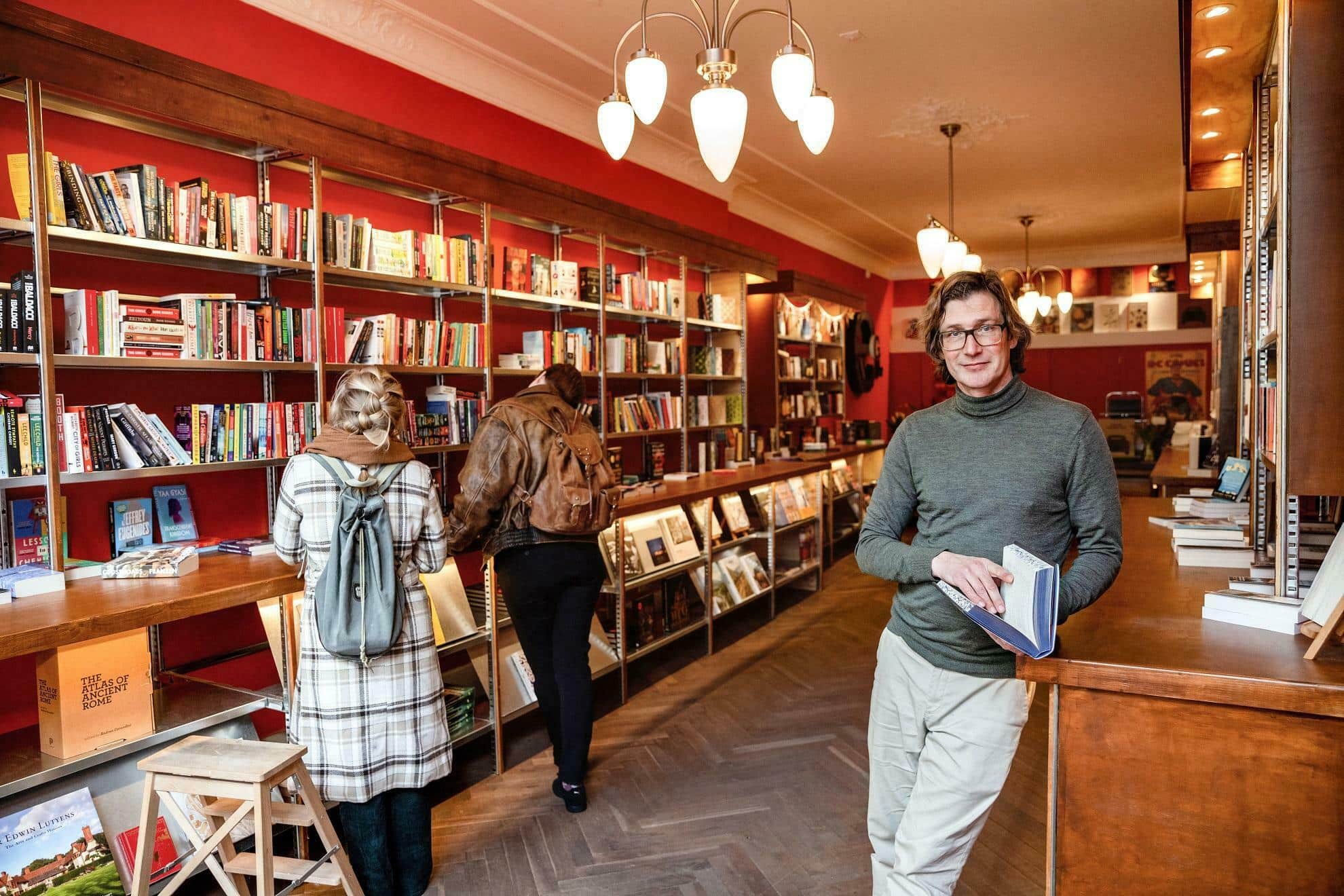 In Dordrecht, Gerrit-Jan Kruidenier opened The English Bookshop next-door to his other bookshop, De Bengel: ‘It was a win. But it has not been at the expense of the Dutch-language range. That is actually going well.'
In Dordrecht, Gerrit-Jan Kruidenier opened The English Bookshop next-door to his other bookshop, De Bengel: ‘It was a win. But it has not been at the expense of the Dutch-language range. That is actually going well.'© In Dordrecht
Language is no barrier. At least not to these readers. If they haven’t learned English in secondary or higher education, they will have picked it up on the Internet. In fact, as these new booklovers reveal in the flood of articles and news items this trend, the language is a plus. English has such beautiful words; the rhythm is sublime. Dutch comes across as clumsy in comparison. The fact that they miss many nuances in these literary forays escapes them, for they tend to overestimate their English language skills.
The English books they recommend to each other seem much more fun. Well-written, contemporary, light-hearted stories that contrast starkly with the Dutch-language literature that they’re required to read for school. It doesn’t always have to be about the Second World War or the intolerable navel-gazings of an old white man – one mandatory book in that category is enough to confirm a prejudice against reading forever.
Downward spiral?
That would be worrying. The trend to read in English has grown because many readers prefer “the original” but also because students and professionals who have to read books for their studies or work cannot find those titles in translation. With this new group of readers, the market share of foreign-language books has suddenly become very large in the past few years. Surely that can only be bad news for Dutch-language books?
Consider. In 2012, seven percent of all physical books sold in the Netherlands were in a foreign language. Within five years, that market share rose steadily to twelve percent. Five years later it has risen to twenty percent. In other words: no less than 8.64 million non-Dutch books will have been sold in 2022 – with French, Spanish or Turkish books only selling in dribs and drabs. In Flanders, the market share of English in 2022 was sixteen percent.
The number of English-language children's books sold in the Netherlands has increased by 153 percent since 2018
You can easily imagine a downward spiral. Consumers are buying more and more English from an early age. For instance, the number of English-language children’s books sold in the Netherlands has increased by 153 percent since 2018. Bookstores are increasingly making way for this segment. The consumer, who faces an ever-shrinking selection of Dutch-language titles, will read even more books in English. Soon, booksellers may decide to only offer English-language books. Meanwhile, Dutch-language authors can only sell their work, which they have largely had to self-publish by necessity, on back markets.
Expansion
However, this doomsday image is far from reality. Although bookshops are, indeed, offering more and more English titles, this is not automatically to the detriment of the Dutch-language range. Booksellers view the #BookTok young people as a new target group that can increase turnover but they would would be crazy to let that be at the expense of existing turnover. And so they try to arrange their shelf space to accommodate more English books and just as many Dutch titles.
When possible, they try to expand or move to larger premises. In recent years, in places such as The Hague and Groningen, special branches for English-language books have opened their doors. A good example is De Bengel bookstore in Dordrecht. When the seventy-square-metre store next door became vacant, owner Gerrit-Jan Kruidenier opened The English Bookshop there in April last year. The two cabinets of English that De Bengel had in his original shop were then freed-up for additional Dutch-language offerings.
“It was a win,” he says now. “I didn’t carry young adult and fantasy titles at all because I simply didn’t have room. Now I’m drawing a whole new audience. I sell much more non-fiction in The English Bookshop, simply because the range in English is so incredibly large and I can also stock all sorts of things that don’t exist in translation. But it has not been at the expense of the Dutch-language range. That is actually going well.”
Who cares?
When you hear booksellers talk about #BookTok, it sometimes seems like they don’t really care what they’re selling. As long as a new generation is buying books, the survival of the store is guaranteed for at least a few decades. As one bookseller told RTV Utrecht after the latest annual figures of the book market were announced, “I am happy that I sell books. Whether in Dutch or English, who cares?”
Bookseller: 'Reading English? Fine. But if they say that English is a more beautiful language than Dutch, I will argue.'
That might be a provocation. It is certainly a minority view. Booksellers have a heart for the Dutch-speaking culture, to which they are actively committed. Kruidenier (from De Bengel and The English Bookshop) explains: “It’s great that young people read English. But if they say that English is a more beautiful language, I will argue. That’s nonsense. They only say that because English is hip, as people used to speak French for reasons far removed from the language itself. Try Marieke Lucas Rijneveld, I say. So I hope to plant a seed after all.”
Kees Schafrat van Broekhuis, who runs six bookshops in the east of the Netherlands, believes that, ultimately, the new generation will pick up Dutch books. “You sometimes hear that ‘when this group is thirty, it will stop’. I don’t believe that. If you’ve been reading two evenings a week for years and attending events, you don’t suddenly stop. You will simply read something different than you did as a young adult. English literature perhaps, but also books such as Humankind: A Hopeful History. (De Meeste Mensen Deugen).”
Scattergun approach
Publishers, of course, have other concerns. Their income has definitely been declining. In the Netherlands, 1.2 million fewer Dutch-language books were sold through both physical and online bookstores in 2022 than a year earlier. In Flanders, it was 1 million. It was not possible to compensate for these falling number by increasing the selling price or opening up new sales channels. Losses like these forced publishers to devise strategies to make Dutch-language books more attractive.
 Kees Schafrat (Broekhuis), who runs six bookshops in the Netherlands, thinks that the new generation will eventually choose Dutch books.
Kees Schafrat (Broekhuis), who runs six bookshops in the Netherlands, thinks that the new generation will eventually choose Dutch books.Despite falling sales, publishers continue to bring huge numbers of books onto the market. In fact, more than ever before. In those early years, when the market share of English language books started to grow, the number of new general books published in the Netherlands has also increased: from 10,700 in 2017 (6,200 in the literary-cultural category) to 11,900 in 2021 (with 6,800 in the literary-cultural category). Production plus import in Flanders also increased in those years. However, in relative terms, these books are not often translated.
The major publishers are striving to reduce their production. Falling sales numbers and rising production costs have forced them to get the most out of every title. The scattergun approach, in which one bestseller compensates for the loss of another title that isn’t performing well, has become too risky now that so many books do not earn back the investments due to a lack of attention from the publisher. As a result, publishers prefer to focus on successfully marketing fewer titles.
But whatever more traditional publishers stop doing is picked up by new entrants who can recoup their costs with lower sales numbers. After all, it’s not necessary to publish a book from a large office building where dozens of people are employed. It can be done just as easily from a home office. Publishing a book only requires a relatively small upfront investment. Access to the market is easy and numerous target groups can be found online.
Competition with translated works
At most, fewer translations from English have been published in recent years. That’s what publishers say, anyway, though there is no hard data. Their strategies to make the Dutch-language book more attractive have, therefore, focused primarily on this smaller number of translations. This is also where the direct competition takes place, explains Maarten Van Steenbergen, Lannoo’s publishing director. Originally, Dutch editions were by definition unique.
 Maarten van Steenbergen (publishing director Lannoo): 'We sell eighty to ninety percent of our English-language books abroad. They do not depend on the home market.'
Maarten van Steenbergen (publishing director Lannoo): 'We sell eighty to ninety percent of our English-language books abroad. They do not depend on the home market.'© Wouter Rawoens
A research study published last year by KVB Boekwerk, the Dutch knowledge and innovation platform for the book trade, considered the idea of reading in a foreign language, and provided some good starting points for further investigation. For example, forty-one percent of those surveyed say they choose to read in English because the book they were looking for was only available in English. Although sometimes they don’t know any better: seventeen percent of young people choose books because they popped up on social media; but on TikTok only the English book cover is shown.
This means that the Dutch covers and titles must be properly brought to the attention of social media users. That might seem obvious, but it’s not that simple. Not so long ago, the most successful English-language books took months to appear in translation. Harry Potter and the Order of the Phoenix by J.K. Rowling appeared in June 2003 and was in the Dutch top ten for weeks. Harry Potter en de Orde van de Feniks didn’t come until November – and was in the top ten even longer afterwards.
One title, no language
Such a time span is now unthinkable. Publishers demand of copyright holders that the translation can appear at the same time – or, if possible, before – the original is launched. Publishers once sent out roaring press releases about this: “We have the world’s first!” In the meantime it has become almost the norm. The new Bret Easton Ellis, J.M. Coetzee and Eleanor Catton books all appeared in Dutch first.
 The Dutch edition of 'It Ends With Us' by Colleen Hoover kept its English title.
The Dutch edition of 'It Ends With Us' by Colleen Hoover kept its English title.And once the book is there, a publisher sometimes has to go to great lengths to show that translation is an option. An example is It Ends With Us
by Colleen Hoover. In 2016 Z&K published it with its own cover under the title Nooit Meer. When Hoover became a huge hit worldwide, this publisher released a new edition – with exactly the same cover and English title, with the note, “Dutch edition,” in smaller letters. This way, the target group recognised it as “that book from TikTok that I want to read”.
Then it just requires a little bit of additional help from the bookshop to display the original and the translation side by side, which is something booksellers often do in practice anyway. “The English books in our stores are increasingly being integrated into the total range,” says Kees Schafrat van Broekhuis. “There are still separate shelves, but Dutch and English, for example, are together in the top ten. That’s how people choose. They are looking for a specific title, not a book in English or Dutch.”
Perks
Profit can also be made by increasing the quality of Dutch books. When asked how they could be persuaded to choose Dutch over English, readers gave answers such as: better translations, comparable prices and better execution. It is precisely that new target group of young people that is leading the charge. Forty-five percent say they would not exchange the English for the Dutch edition for any reason.
A better translation? That is difficult. It is a prejudice that translators, even though they are grossly underpaid, do mediocre work. A comparable price? Even trickier. Publishers of English-language paperbacks don’t have to pay translation costs. They also have a lower production price per copy thanks to higher print runs, and can – in the absence of a fixed or regulated book price – drop the sales price. A price war will never be won.
Dutch and English books are together in the top ten. That's how people choose.
But the better execution of an edition offers possibilities. In recent years, publishers have been experimenting more and more with luxury versions, limited editions or extras such as special bookmarks, an autograph from the author or matching gifts. This applies in particular to publishers of genres such as young adult, romance and fantasy, which are all popular with young people. It’s also young people who are really sensitive to these perks. First, they read the paperback, then they want the hardcover, limited edition to cherish.
Publish in English
If all else fails, Dutch and Flemish publishers can, of course, also publish in English. This is less revolutionary than it seems. Publishers have always produced their own bestsellers books in English translation, usually because they couldn’t find a foreign publisher for the title or accommodate an author. Some are also structurally active abroad. Publisher Clavis, for example, has long had an office in New York.
But Dutch publishers are now also publishing books written in English. And not only by authors who happen to live in the Low Countries. That is something new. Last year, Singel Uitgeverijen published its own editions of, among others, Confidence Man: the Making of Donald Trump: The Breaking of America by Maggie Haberman and Cinema Speculation by Quentin Tarantino. In the shops, these titles compete with the American and British imports. It is an experiment that will be widely imitated in the years to come.
Lannoo participates in this in its own way by always publishing upmarket lifestyle books with lots of photos and little text in multilingual editions. But the series 150 xxx You Need to Visit before You Die – read xxx as vineyards, golf courses and even bookstores – is now only available in English. “We sell eighty to ninety percent of these books abroad,” says publishing director Van Steenbergen. “They don’t depend on our home market.”
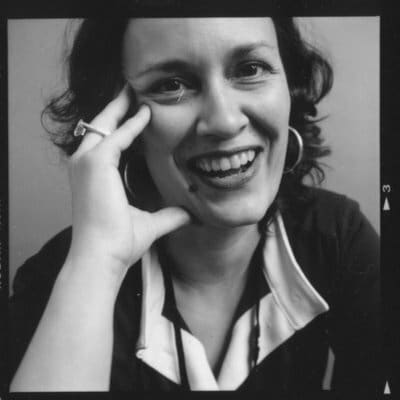 Elik Lettinga, publisher at Singel Uitgeverijen, which released its own English-language editions in 2022, says that these books also send a message to English and American publishers.
Elik Lettinga, publisher at Singel Uitgeverijen, which released its own English-language editions in 2022, says that these books also send a message to English and American publishers.However, this choice does not mean that publishers are giving up on Dutch. Just like booksellers, publishers have a big heart for Dutch-language culture. Supervising authors and developing concepts is their strength. It is also the most enjoyable aspect of publishing. If Lannoo publishes in English, it is also to broaden the market. As Van Steenbergen notes, “last year we achieved our highest turnover ever abroad. But we see that as additional revenue.”
Or read what Elik Lettinga, publisher at Singel Uitgeverijen, who spoke about their initiative in de Volkskrant and their intention to make translations from English cheaper in the long term, said: “We are doing this to show that something is changing and to send a signal. That American and British agents can expect lower advances, for example, or that an American or British publisher has to pay for an author’s visit.”
Declining quality
Independent translators and writers suffer the most from the tumultuous advance of the English book. Fewer translations from English simply mean fewer assignments for translators. Thanks to standard contracts, their rate remains the same, but soon there will no longer be enough work for everyone. And those who do have work are under greater time pressure. Homegrown authors collect three percent fewer royalties, after three percent fewer Dutch-language books were sold last year.
 Tiziano Perez (Dutch Foundation for Literature): 'Writing is best done in your own language, in which an author can best formulate and be creative.’
Tiziano Perez (Dutch Foundation for Literature): 'Writing is best done in your own language, in which an author can best formulate and be creative.’Are there strategies they can try to make up for that loss of income? Can they broaden their market? Not really. The number of authors who only earn an average income from the sale of their books is already very small. Based on sales in the Netherlands, there are about eighty (twenty-five in the literary-cultural genre). And in that category, many still have to keep their day jobs: teaching, writing columns, etc., which does not always improve the quality of their literary works.
The quality of Dutch-language writers may also decline in the long term. Tiziano Perez of the Dutch Foundation for Literature fears this evolution. “A person has to be sufficiently well-read to be able to write,” he says. “And writing is best done in an author’s own language, in which he or she can best formulate and create.” In other words: if less Dutch is read, fewer new writers with sufficient talent will emerge.
Cherish our language
In translator, writer and literature promoter circles – those who are the least able to absorb the blows of an Anglicised book market – there is the greatest urgency to address what they consider to be disastrous consequences. If society no longer has “original, new and diverse voices, the character of the Dutch language threatens to be lost,” Miro Lucassen, chairman of the Authors’ Union, wrote ominously in de Volkskrant.
 Miro Lucassen (Authors' Union) fears that the individual character of the Dutch language is in danger of being lost if society no longer has original, new and diverse voices.
Miro Lucassen (Authors' Union) fears that the individual character of the Dutch language is in danger of being lost if society no longer has original, new and diverse voices.According to them, the causes must be tackled: the lack of attention given to Dutch and national literature at school, the excessive use of English in higher education, the lack of even one book program on television, the grocery mentality when awarding grants for writers, you name it. Everything shows the disparagement of reading in one’s own language.
On the other hand, the whole of society, but especially the government, must convey that “we” cherish our language – certainly in the Netherlands, though feelings may run less strongly than in Flanders. Perhaps with a targeted campaign, the idea among the young generations that English is so much more beautiful than Dutch will also disappear along with that old prejudice that Flemish and Dutch literature is not as diverse and polyphonic as English literature and is only about the war or everyday concerns.
Rather no soulfulness
Is that change on the horizon? At this point, one can only hope that the separate reading offensives, for which The Hague and Brussels have made extra resources available in recent years, will not only lead to better reading skills and more reading pleasure among young readers, but will also fuel the need to publish books in their own way, in their own language. In any case, no one can count on more government money to promote the latter in a targeted manner.
And then there are some other issues. Booksellers and publishers are not really interested in a separate promotional campaign for Dutch books. “The Dutch-English ratio is only relevant for the book trade itself,” says Kees Schafrat van Broekhuis. “The public doesn’t care about it.” And isn’t the effect counterproductive? “A campaign increases the ‘pathetic content’ of the Dutch book.” Publishers should, rather, publish books well and smartly – see It Ends with Us.
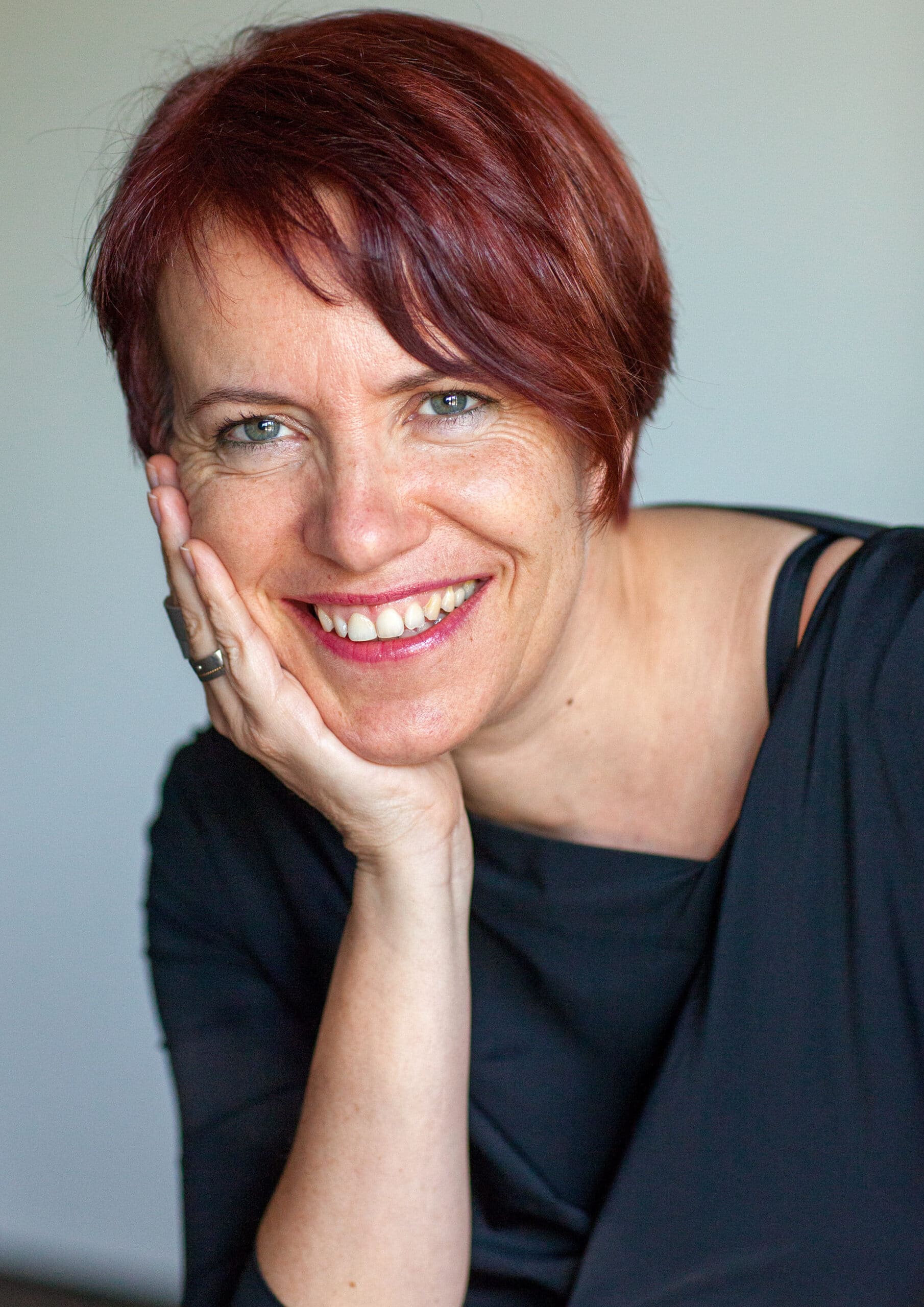 Vé Bobelyn (Flemish Group of General Publishers) notes that in all book campaigns the emphasis is always on books in the native language.
Vé Bobelyn (Flemish Group of General Publishers) notes that in all book campaigns the emphasis is always on books in the native language.© VBK Uitgevers
Moreover, promotion is implicit in all general book campaigns in the Low Countries. From Book Week in the Netherlands to the Youth Book Month in Flanders, the emphasis is always on books in one’s own language. “At most we can, in collaboration with all parties involved, make it even more accessible for young families to start reading with a new campaign,” says Vé Bobelyn of the Flemish Group of General Publishers.
And then the profession should trust that young readers, thanks to the most beautiful publications from publishers, their attractive presentation in bookshops and structural attention from the media, will not completely switch to English at a later age, but will continue to read, grasp, enjoy and cherish Dutch books.


